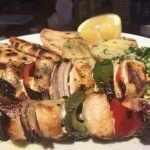Weight Control And The Brain:Both Friend And Foe
When it comes to weight control, being aware of what, how and why we eat is an important tool for helping us to take better control of our eating. Different parts of the brain have different functions, and when it comes to eating, there’s a part of the brain that is responsible for the impulsive urge to eat, and another part that enables us to make rational decisions about our eating. The drive to eat can be very powerful, but with a little practice, we can engage the brain to engage us in new eating habits.
Eating On Autopilot- The Unconscious Drive To Eat
What can let us down when we’re trying to control our eating is ‘auto-pilot’ mode – eating is such a routine behaviour that it’s easy to eat with little thought and awareness, which can cause us to overeat and make poor food choices. When it comes to weight control, we can often find that we’re battling with our innate drive to eat. In today’s Western world, where food is abundant, we’re at little risk of starvation and yet our ancient brain is still in survival mode. It doesn’t know where the next meal is coming from, so it will do all it can to make us eat- this is why we can end up giving in to the urge to eat, often just by the sight or smell of food. A surge of dopamine, a brain chemical involved in reward and pleasure, causes the drive to eat- the urge to eat can take over your thinking and keep you focused on putting some food in your mouth- this is also why we might eat a dessert even though we’re feeling full. The brain is telling us to eat, otherwise we might die- no wonder so many of us have weight control problems!
 The Conscious Brain And The Impulsive Brain
The Conscious Brain And The Impulsive Brain
The human brain has evolved over hundreds of millions of years and is made up of several sections, with some parts more primitive than others. One part of the brain is involved in basic life support such as breathing, heart beat and digestion (the brain stem); another part controls body position, poise, balance and spatial awareness (the cerebellum). The midbrain (limbic system) has a variety of functions including regulating hormones, body temperature, eating, sleep, sexual drive and emotions- including survival emotions for self-protection such as fear and anxiety. It therefore helps us to survive due to its role in feeding, fighting, fleeing and sexual reproduction. Then there is the cerebrum, the most modern and sophisticated part of the brain, divided into four lobes- these lobes each have various roles such as visual processing, movement, speech and language ability. It is from the front of the brain, the frontal lobe, that we’re able to plan, think and problem- solve. Unlike the frontal lobe, the midbrain is not involved in conscious thought. Although they have very different functions, the conscious brain (frontal lobe) is closely linked to the limbic system (midbrain), and so our ability to think and problem solve are heavily influenced by it- as is our weight control ability.
Train Your Brain: Activating the Frontal Lobe For Successful Weight Control
So how can we control this more primitive midbrain, that urges us to eat? In order to control the impulse to eat, activating the frontal lobe, the more ‘human’ part, can help us to make food choices we won’t regret. The frontal lobe enables us to make rational decisions, it enables us to think twice. By activating the frontal lobe it can be possible to calm down the intensity of food cravings coming from the midbrain. We could think of the midbrain as the impulsive child, and the frontal brain as the adult keeping the impulsive child in check. If the frontal lobe of a person becomes damaged through serious injury, that person can lose control of any impulses they have, and taking control of addictive behaviours is directly related to the degree of activation of the frontal lobe.
Getting Out Of The Overeating Rut
 To help with their weight control, it’s common for individuals to avoid certain situations where they will be confronted with tempting food. Avoidance, however, isn’t always the answer- what is helpful is actually confronting situations instead, seeing them as opportunities for you to make positive changes. The reason we act on autopilot or think the same thoughts is because familiar thoughts and behaviours can become engraved into our brains, so that we get stuck in a rut of habitual behaviour. However, by activating the frontal lobe, we can get our brain working in a different way, in a more conscious and controlled way rather than an unconscious and impulsive way.
To help with their weight control, it’s common for individuals to avoid certain situations where they will be confronted with tempting food. Avoidance, however, isn’t always the answer- what is helpful is actually confronting situations instead, seeing them as opportunities for you to make positive changes. The reason we act on autopilot or think the same thoughts is because familiar thoughts and behaviours can become engraved into our brains, so that we get stuck in a rut of habitual behaviour. However, by activating the frontal lobe, we can get our brain working in a different way, in a more conscious and controlled way rather than an unconscious and impulsive way.
It can help to think about what it is about your eating that you’d like to improve or change, and then come up with some strategies to help you. Having a dialogue with yourself can help you to become much more conscious of your eating in any moment. Noticing and addressing any unhelpful, repetitive eating behaviours can activate the frontal brain and lessen the influence of the midbrain. For example, asking yourself ‘Why am I eating this?’, or thinking beyond the immediate pleasure of eating and considering the outcome too (such as feeling uncomfortably full or angry at yourself for overeating) by asking yourself ‘How am I going to feel after I eat this?’ can be useful in helping you to become a more conscious, mindful eater and to achieve weight control success.
No More Strict Diets- Build Lifelong Habits Instead
If you’re trying to become more skilful at weight control, it’s important to remember that it doesn’t happen overnight. It’s important to be patient- if you think about how many years you might have struggled with weight control, you can’t expect your old habits to suddenly vanish- repetition of new thoughts and behaviours is the way that we learn, and so by practising new attitudes and habits, you should start being able to reach your weight control goals in a few days or weeks. Remember that it’s the primitive part of your brain that can let you down by urging you to eat, but it’s possible to tame it with the more rational, thinking part of the brain. Quick-fix weight loss diets that involve being told what to eat don’t necessarily help us to think for ourselves or to create new habits- they are often just a strict eating plan that we attempt to stick to, until the drive to eat takes over and we ditch the diet. It can be much more helpful to focus on becoming less of a calorie-counter and more of a conscious eater- by engaging the thinking brain. Awareness is key, and so identifying your most unhelpful eating habits and motivations and gradually replacing them with more helpful ones is more likely to help you make permanent changes for life. So shake up your brain to help you shape up!
If you feel you could benefit from my Mindful Eating service, give me a call (Emma Randall) on 07961 423120, or email me: info@mindfuleating.org.uk. I’m based in Lightwater, Surrey. I also offer Skype sessions.
See ‘Services‘ for more information.
If you’d like to come to one of my workshops please click HERE for latest topics and dates.

